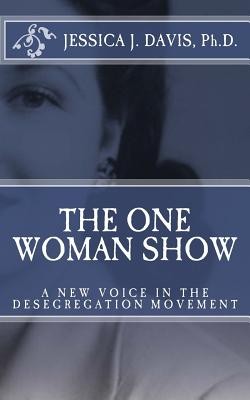
- We will send in 10–14 business days.
- Author: Jessica J Davis Ph D
- Publisher: Faith & Public Policy Institute Inc.
- ISBN-10: 0692805583
- ISBN-13: 9780692805589
- Format: 12.7 x 20.3 x 1 cm, softcover
- Language: English
- SAVE -10% with code: EXTRA
Reviews
Description
Mrs. Esther Brown, a White Jewish woman, led the movement to desegregate public education in the early 1950s. Thurgood Marshall called her the "One Woman Show." Unfortunately, very few people know her name. This historical narrative establishes her role in the development of desegregation policy in public education in the contemporary public narrative on desegregation policy in the early 1950s, the challenges to the implementation of the desegregation of public education, and the local context that led to the national fight against desegregation. The significance of this historical narrative is to highlight the struggles that activists, many of whom are unsung heroes, went through to navigate the struggles and processes that enabled the desegregation of public education in America.
EXTRA 10 % discount with code: EXTRA
The promotion ends in 20d.05:32:35
The discount code is valid when purchasing from 10 €. Discounts do not stack.
- Author: Jessica J Davis Ph D
- Publisher: Faith & Public Policy Institute Inc.
- ISBN-10: 0692805583
- ISBN-13: 9780692805589
- Format: 12.7 x 20.3 x 1 cm, softcover
- Language: English English
Mrs. Esther Brown, a White Jewish woman, led the movement to desegregate public education in the early 1950s. Thurgood Marshall called her the "One Woman Show." Unfortunately, very few people know her name. This historical narrative establishes her role in the development of desegregation policy in public education in the contemporary public narrative on desegregation policy in the early 1950s, the challenges to the implementation of the desegregation of public education, and the local context that led to the national fight against desegregation. The significance of this historical narrative is to highlight the struggles that activists, many of whom are unsung heroes, went through to navigate the struggles and processes that enabled the desegregation of public education in America.


Reviews